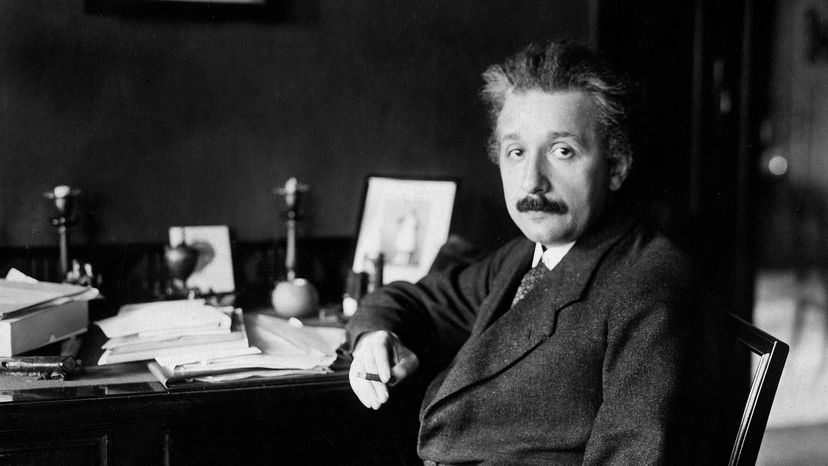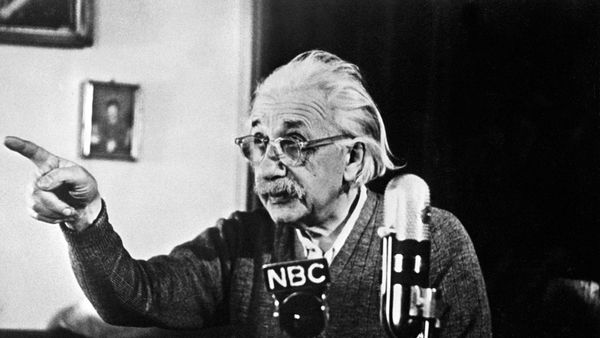
Albert Einstein, a man whose name is practically synonymous with genius, is one of history's greatest thinkers. As a physicist and mathematician, Einstein wasn't an inventor in the vein of Thomas Edison or Alexander Graham Bell, but his theories of relativity led to new ways of looking at time, space, matter, energy and gravity. His work led to important advances including the control of atomic energy, space exploration, and applications of light.
As a young boy born to Jewish parents in Germany, his teachers initially called him slow and lazy. However, by the time he left school at the age of 15, one teacher remarked there was nothing left to teach him [source: Golden].
Advertisement
Einstein studied at the Institute of Technology in Zurich and received his doctorate in 1905 at the age of 26. That same year, he published five groundbreaking scientific papers. The first paper earned him his doctorate, and the concepts presented in the next four papers helped change our understanding of the universe. The topics were:
- Brownian movement, or the zigzag motion of microscopic particles in suspension. Einstein's findings helped to prove the existence of atoms and molecules.
- Thequantum theory of light. Einstein proposed that light is composed of separate packets of energy, called -- quanta or photons -- that have some properties of particles and some properties of waves. He also explained the photoelectric effect, which is the emission of electrons from some solids when they're struck by light. Television is a practical application of Einstein's theory of light.
- Thespecial theory of relativity. Einstein explained that time and motion are relative to their observers -- as long as the speed of light remains constant and natural laws are the same throughout the universe.
- The link between mass and energy. The fourth paper expanded on this idea with the famous equation E = mc2, relating mass and energy. This formula demonstrates that a small particle of matter contains an enormous amount of energy. This forms much of the basis for nuclear energy.
What happened after this extremely productive year? Find out on the next page.
Advertisement

